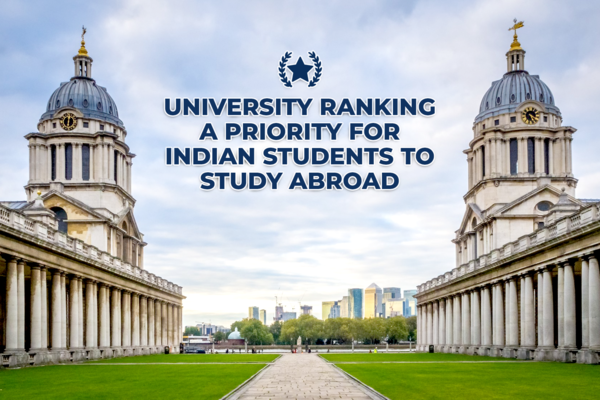Table of Contents
Why students prioritize university standings
A recent survey conducted by Fateh Education has shed light on the significant influence of university rankings on the decisions of Indian students aspiring to study abroad for international education. A resounding 78 percent of respondents consider rankings a pivotal factor, underscoring the paramount importance placed on institutional prestige.
Tuition fees and job opportunities
While rankings take the top spot, the survey delves into the multifaceted decision-making process, revealing that 71 percent of students prioritize tuition fees as the second most crucial parameter. Job opportunities closely follow, with 65 percent of students emphasizing the importance of future career prospects. This reflects a delicate balance between financial considerations and long-term professional goals.

Factors beyond the usual
The survey explored additional parameters influencing students’ choices. It uncovered a hierarchy that includes:
- cost of living (53 percent)
- post-study work visa availability (51 percent)
- course rankings (49 percent)
- university location (41 percent)
- part-time work opportunities (31 percent).
This nuanced perspective reveals the complex interplay of considerations beyond the headline factors.
Prioritizing academic excellence amidst shifting norms
Amidst changing visa norms and geopolitical impacts on transnational education, the CEO and Co-Founder of Fateh Education, Suneet Singh Kochar, emphasizes the enduring quest for academic excellence among Indian students. The survey highlights the need for comprehensive support mechanisms. With Kochar noting that while rankings provide a good indicative parameter, personalized guidance is essential for students to align their choices with personal strengths and career aspirations.
Navigating the Future with Informed Choices
As Indian students continue to explore international education opportunities, this survey unveils the intricate decision-making landscape. Beyond the allure of rankings, factors like financial considerations, career prospects, and holistic support mechanisms play pivotal roles. Understanding this intricate matrix empowers students to make informed choices that align with both their academic goals and future professional aspirations.






